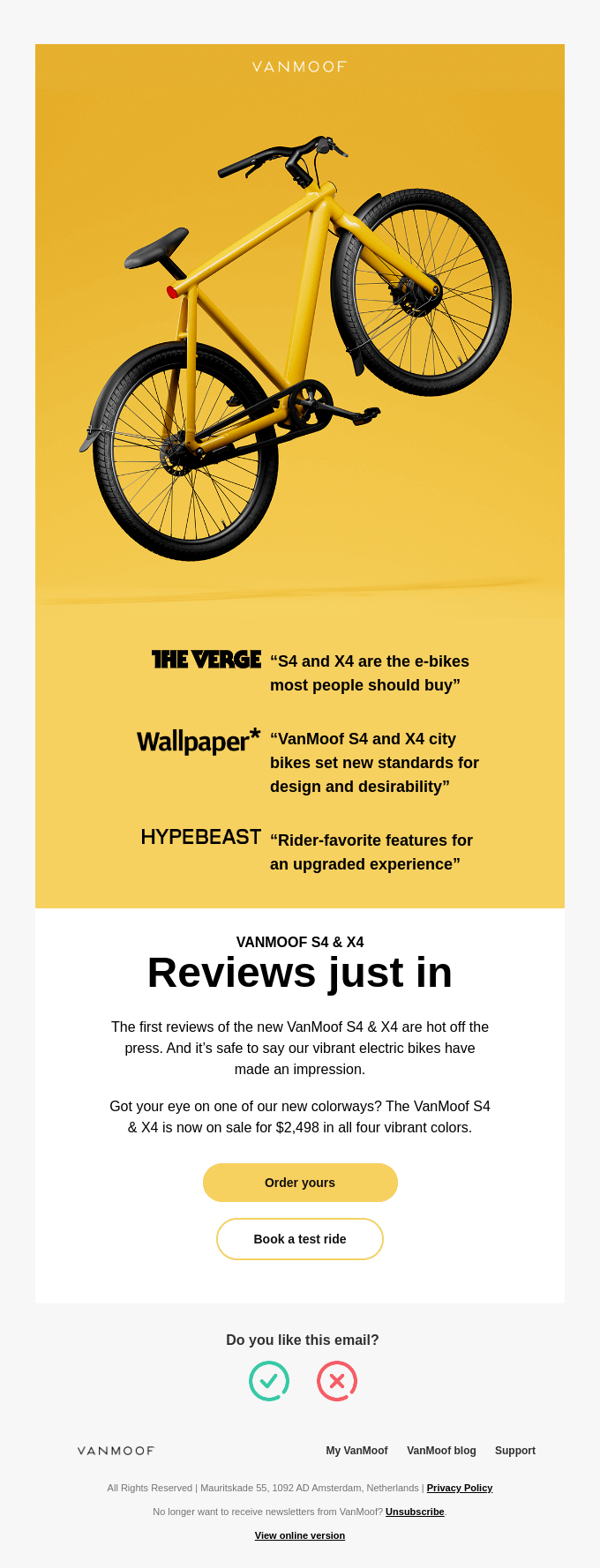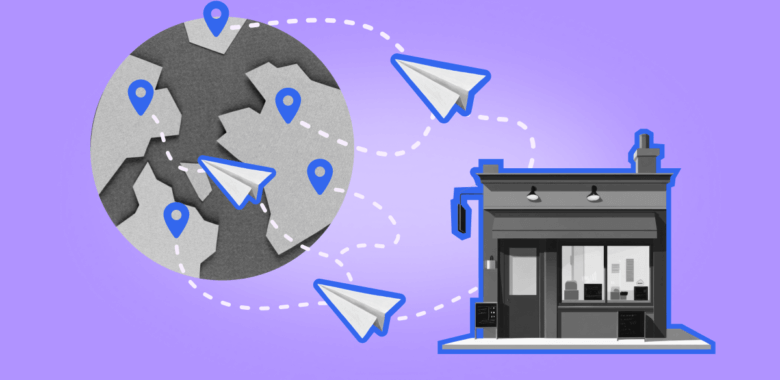What is social proof in email marketing?
Social proof is a psychological concept which means that people tend to look at others when making decisions. When we can’t choose, for instance, which online course to pick, we look for an opinion that we can trust. It may come in the form of:
- Endorsements by the best professionals in a specific niche.
- Mentions and promotions by celebrities.
- Positive reviews by real people.
- Discussions and recommendations on social media.
That’s how social proof in marketing works. You can use it in any marketing channel, including promotional emails. Actually, testimonial emails are a whole subgenre of email marketing. But it’s not the only use case of social proof in emails — you can add this secret spice to any campaign, like welcome emails or retention campaigns.
In all these cases, highlighting endorsements and reviews in your email campaigns will show that your product or service is worth purchasing. At the same time, you can use emails to gain even more social proof by asking your audience for feedback and participation in your promotion.
Why is it important?
People often believe that others know better. If we see a lot of social proof for some product, we will most likely choose it when we have a choice of similar alternatives. It works best when a person knows little about the niche and doesn’t have an established preference yet.
Email campaigns are a great channel for social proof because you can send it right into your audience’s inboxes. And, by doing so, you’re saving your subscribers time and effort. Instead of having to search for reviews and opinions online, they have them delivered right to their digital doorstep. And if someone is interested in you enough to subscribe to your newsletter, they’re “warm” enough to buy your products after one or two emails with reviews.


















